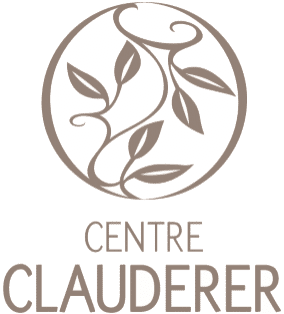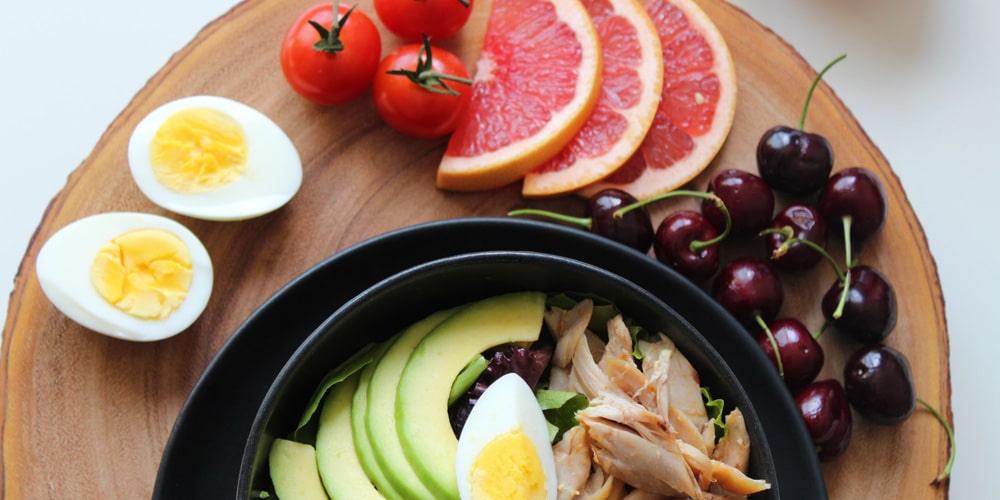On your table, here's why the right diet for combating hair loss includes sufficient :
1° PROTEINS
Their role
It is crucial: proteins contain the two sulphur-containing amino acids, methionine and cysteine, which are the very building blocks of keratin. An essential amino acid, methionine cannot be synthesised by the body and must be supplied by food. Cysteine, on the other hand, can be metabolised by methionine, but this synthesis takes place at the expense of vitamin B6. It is best if it is also provided by the diet. RDA (Recommended Daily Allowance): 50 to 60 g. Please note: the figures in brackets below represent the mg content per 100g edible weight of each food (Source: ISHA).
Animal source
Sole (27), tuna (25), hard cheeses (27 on average, but 40 for Parmesan!), salami (24), soft cheeses (22 on average), cooked ham (22), chicken (21), beef (18), egg yolk (16).
Plant source
Soy flour (45), roasted peanuts (27), lentils (24), beans (23), pistachios (21), almonds (20).
Caution!
- Sulphur amino acids are mainly found in proteins of animal origin. Vegetarians suffering from alopecia should keep a very close eye on their protein RDA and, if necessary, compensate for the lack of sulphur amino acids with nutritional supplements: brewer's yeast, for example, is particularly rich in sulphur amino acids (45).
- On the other hand, too much protein isn't good for your hair either... Read more: Too acidic a diet, beware of your hair.
2° IRON
Its role
Essential for the metabolism of red blood cells, iron plays a vital role in oxygenating hair follicle tissue. A high iron deficiency is almost certain to result in hair loss. RDA: 14-18 mg for pubescent teenagers, 16-18 mg for adult women, 25-30 mg for pregnant women, 20- 22 mg for breast-feeding women.
Iron is better absorbed by direct dietary intake than by supplementary medicines. And here again, vegetarians should beware: the iron contained in vegetables is 5 times less absorbed than that contained in meat.
Animal source
Mussels (24), shellfish (20 on average), black pudding (22), beef or lamb liver (10), kidneys (9), calf liver (8), egg yolk (7), oysters (5.5), salami (4), beef and veal (3 on average).
Plant source
Parsley (from 2 to 20), cocoa (12), soya flour (10), enriched breakfast cereals (8 on average, but 23 for 'Special K'), almonds & hazelnuts (4.5), spinach - beware of preconceived ideas about spinach: cooked or tinned (2.7), cooked white beans (3.5), cooked lentils (2.5), dried peanuts (2.20).
Caution!
- Vitamin C facilitates the transport of iron. As a result, it is also one of the elements essential for hair: orange juice taken with a meal triples the absorption of iron contained in the food ingested.
- Combinations to avoid: iron and tea, as the tannins in tea inhibit the absorption of iron. The same applies to coffee, but to a much lesser degree.
- Iron deficiency, which is common among women of childbearing age and vegetarians, leads to a thinning of the hair. When hair is thinning or falling out abnormally, spread over the whole head, it is advisable to check serum iron and ferritin levels by means of a blood test. Cf. iron deficiency and hair loss. If these rates are low, you need to take iron to bring them back up. If they are high, the problem is more complex. In that case, it's best to have a hair diagnosis with analysis of their roots, to determine the origin of the disorder.
3° ZINC AND MAGNESIUM
Their role
These two trace elements prevent premature ageing of the hair by preventing free radicals (waste products of cellular life) from entering the micro-circulation of the hair follicles, where the blood vessels are so small that the major antioxidants (vitamins A, C and E) cannot penetrate. Zinc's second role is essential for the synthesis of keratin proteins, by binding their sulphur endings together. RDA zinc: 15 mg. Finally, magnesium is a natural regulator of nervous tension. An important property, given that stress is the number one factor in aggravating hormonal hair loss! RDA magnesium: 350 mg.
Caution!
On a day-to-day basis, to preserve the antioxidant properties of these two fragile trace elements, which are so necessary for healthy hair and hair renewal, avoid refined products altogether and opt for wholegrain cereals and wholemeal bread!
Animal source
ZINC: Oysters (20), pressed cheeses such as Comté (10), Beaufort (7), shellfish (5), egg yolk (4), veal (3.5), pork (2.6).
MAGNESIUM: Shellfish (200 to 400), smoked herring (50), crab (48), prawns (42), mackerel (33).
Plant source
ZINC: Wheat grains in morning cereals (5.5), lentils (5.5), beans (5.2), wholemeal bread (5), peas (3.5).
MAGNESIUM: Cocoa (400), almonds (252), soya (240), wholemeal cereals (150), brown rice (106), bananas (105), wholemeal bread (90), spinach (50 to 100).
4° GROUP B VITAMINS
Their role
They are hair's fuel, its vitamins par excellence. They can be found everywhere, on every front: they promote blood micro-circulation, help produce energy, contribute to the protein metabolism of keratin, cleanse the hair follicle... In short, each of them contributes to a specific task, helping hair to grow properly. To be more precise:
B3 - PP or Niacin (RDA, 15mg). Increases blood circulation in the roots.
B5 - Pantothenic acid (RDA, 15 mg). Helps hair growth.
B6 - Pyridoxine (RDA, 2 mg). Essential factor in the metabolism of sulphur proteins in keratin.
B8 - H or Biotin. Controls sebum secretion. Helps hair regrow.
Animal source
B3: liver (15), canned tuna (13.5), mackerel (8), chicken (7), veal (6), cooked ham (5.10).
B5: egg yolk (6), turkey (3).
B6: herring (1.3), skimmed milk powder (1.3), plaice (1), salmon and tuna (0.5).
B8 (in mcg): egg (14), chicken (10).
Plant source
B3: wholegrain breakfast cereals (15) mushrooms (5), soya (5), almonds, rice (4), dried figs (3).
B5: mushrooms (2.7), lentils (1.5) soya (1.4).
B6: wholemeal breakfast cereals (1.7 on average, but 3.3 for 'Special K'),
corn kernels (0.7), spinach (0.5), banana (0.5), potato (0.4).
B8 (in mcg): mushroom (11), cauliflower (11), lentils (9).
IN SUMMARY
Sulphur proteins, zinc and B vitamins are essential for keratin synthesis, iron for root oxygenation, and magnesium and zinc (again) for protecting the hair follicle from free radicals. To preserve the nutritional value of these 5 elements, try to consume as few heavily processed sugars as possible and pay close attention to cooking times.
DIET AND HAIR LOSS

